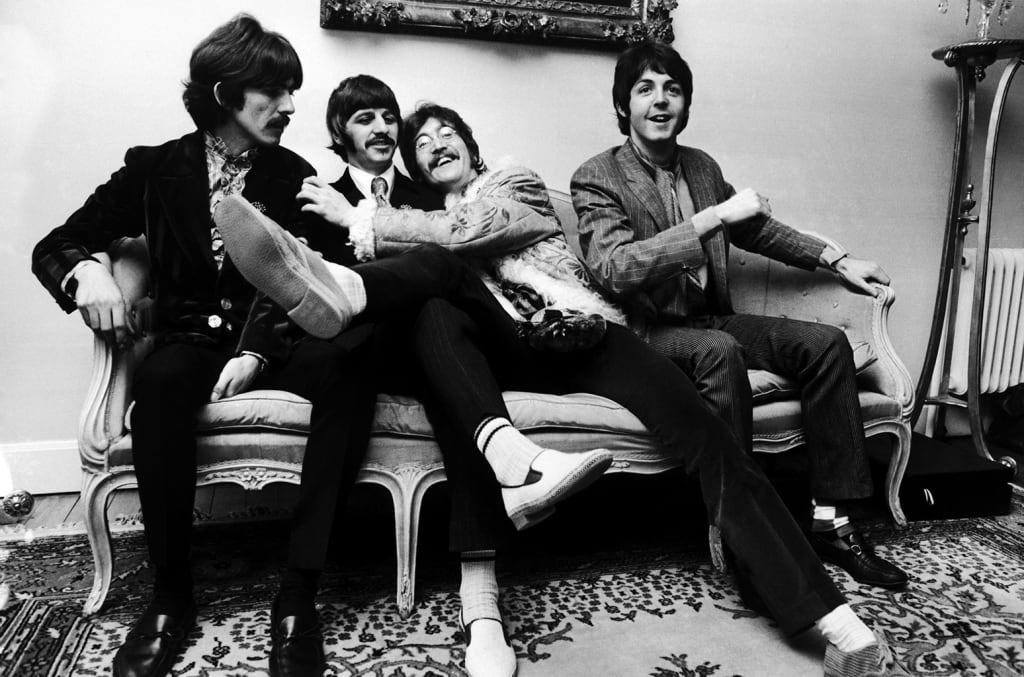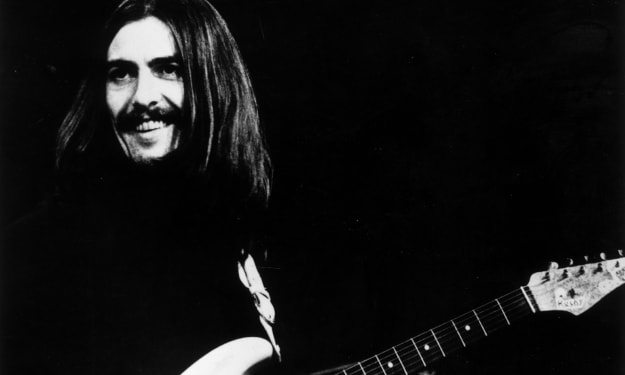
I have spent a little time considering what it is I wanted to spend time writing about, and after foolishly posing the question to my dad, he responded "talk about how shit music is nowadays compared to the 60s." Eloquent as always, but the man did have a point. It has always been a running joke in my family that my first words were not "mummy" or "daddy," instead they were "John, Paul, Ringo, and George," and The Beatles have played a fundamental part in my development since that exact moment.
When Brian Epstein walked in to the Cavern Club one lunchtime in November 1961, even he couldn't foresee the phenomenon that was about to follow. Aside from their quirky sense of fashion and remarkable ability to make long hair socially acceptable (and even attractive), The Beatles were set to transform the music industry.
Song Writing
For me, the significance of the "singer-songwriter" is indescribable. The Beatles did something that was almost unheard of for mainstream rock or pop artists in their era. While personally one of my favourite Beatles albums will always be Abbey Road, with thanks to George Harrison’s lyrical genius of "Something" and "Here Comes the Sun," it is evidently the workings of Lennon and McCartney that have had a long-standing influence on the music industry. Lennon and McCartney's use of music as spiritual experimentation, much like the efforts of Bob Dylan in the 60s also, allowed for the duo to be seen as a creative entity.
Chart Success
The Beatles' chart success was and remains to be unparalleled. They are the best selling music artists of all time, and on April 4, 1964 they held Number 1, 2, 3, 4 and 5 in the Billboard Top 100. Nothing more needs to be said.
Album Format
While The Beatles themselves refuse to consider it so, many regard Sgt Pepper’s Lonely Hearts Club Band (1967) as the first "concept" album. Without the release of this "conceptual" masterpiece, it is hard to imagine the production of albums such as King Crimson’s The Court of Crimson King (1969) and Pink Floyd’s Dark Side of the Moon (1973), with The Court of Crimson King frequently being considered as an explicit continuation of "A Day in the Life," with the orchestral brilliance being mirrored throughout.
Psychedelic Influence
While The Beach Boys revolutionised the concept of psychedelic pop, The Beatles' albums Rubber Soul (1965) and Revolver (1966) signaled that psychedelic music “had irrevocably been launched” in the rock world.
Music Production
Upon quitting touring in 1966, The Beatles allowed themselves a new free reign when it came to their production of music. "Tomorrow Never Knows," which features on the psychedelic album Revolver (1966) can be seen as one of the first realisations of this freedom in production, with Harrison's introduction of Indian instruments such as the sitar providing a catalyst for the binding of Western and Indian instruments. Sgt Pepper's fundamentally restructured the playing field of musical production, with George Martin's importance far too frequently being overshadowed. The album incorporated a 40 piece orchestra, East Indian classical musicians and studio techniques such as ADT and back masking among many other things that I am nowhere near qualified to understand or appreciate. What I am aware of, though, is that such extensive musical production would have been seemingly impossible to convey over stage performance, thus the halting on touring allowed for The Beatles to focus on creating music without limitations.
Cultural Impact
Perhaps one of the most fundamental factors relating to The Beatles' overwhelming success stems from one simple fact: the population was ready. Ready for change. Ready for a revolution. The 60s were a time for a new wave of counter culture, anti-establishment, and free expression, and The Beatles' use of psychedelic music and spiritual experimentalism in their lyricism allowed the population to thrive off of their music.
The Beatles didn't simply revolutionise the music industry, they presented a necessary cultural revelation.
Case, George (2010). Out of Our Heads: Rock 'n' Roll Before the Drugs Wore Off. Milwaukee, WI: Backbeat Books. pp. 27, 30–31. ISBN 978-0-87930-967-1.






Comments
There are no comments for this story
Be the first to respond and start the conversation.